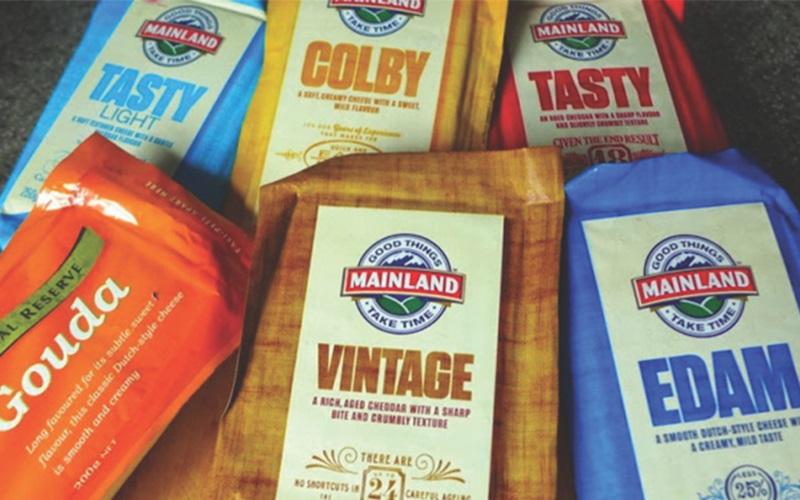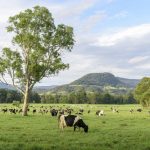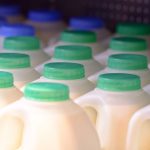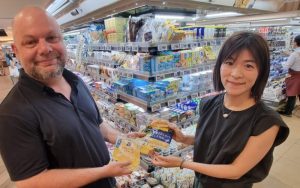
The co-op shoud be very wary of narrowing its focus in such an uncertain world, says Ben Anderson.
In New Zealand Fonterra is a big dog. In a good way. In fact, even in the global context it’s big, coming in as the sixth largest dairy company in the world.
I was quite proud of this, so I was a bit taken aback when it recently said it wanted to get smaller. Around $3.4 billion smaller, to be exact.
Brands like Anchor, Mainland and Fresh’n Fruity will all be on the block, allowing Fonterra to focus on core business such as collecting milk and flicking it on in simplified formats such as powder or other foodservice ingredients.
As a Fonterra shareholder my first thought was great! Times are tight and wouldn’t a nice little cash injection be handy about now. Clearly, I wasn’t the only one to think so as the airwaves became chocka with financial commentators and opportunists lining up for a piece of the action.
My second thought was why? After all, if its brands are going to be so attractive and valuable to potential purchasers such as Nestlé or Danone, why would we not keep that value for our own long-term benefit?
But if such a major change is required, you could also wonder how they got it all so wrong in the first place.
Now I know this topic has been beaten to death in the media already, and as a new entrant to the dairy industry my opinion should be taken with a big pinch of salt. But perhaps a bit of “other industry” perspective may be helpful right now.
After all, wouldn’t NZ’s wool industry like a couple of globally recognised and valued consumer brands in its portfolio right now? How about NZ’s velvet industry? Wouldn’t those farmers love to own a consumer brand that is internationally recognised and valued?
These industries have been selling raw, undifferentiated commodity products for quite some time now, and I suspect their farmers would be more than happy to discuss with Fonterra how that’s currently going for them.
Commodity dependency is a real and well recognised issue for both NZ’s farmers and the country’s economy as a whole. It’s hard to reconcile that fact with Fonterra’s desire to sell off the only things that make it recognisable in its consumers’ eyes.
Of course Fonterra could respond with the fact that selling consumer brands is hard work. It’s not always profitable and there is a logic train that suggests that focusing on a “business to business” model is currently more profitable, which surely is what its farmer owners want?
Equally, I am sure that there are a number of Fonterra farmers who will quite rightly point out that some of the company’s overseas adventures have not always played out well. This could fairly help draw the conclusion that sticking to one’s knitting is the more sensible strategy.
No doubt there are many other good and valid points that Fonterra’s leadership team could add to the case to sell, but there is one key principle that I know for fact, and that is one should always hedge one’s bets.
I remember talking to a director of a well-known NZ food company shortly after the worst of covid. His business had survived the pandemic remarkably well and his reason for it was simple: multiple distribution channels and multiple markets.
In short, his business sold food ingredients as well as finished products into a range of countries. While it was tempting to double down on a singular business model, it was his company’s diversification that underpinned its resilience.
The global trading environment is not going to become any more stable. We will have more pandemics. We will have more conflicts. Perhaps most worryingly to dairy farmers, we will have alternative proteins.
To successfully operate in this environment, Fonterra’s farmers need a co-operative that can sell its milk consistently and at the best possible price. Not having any consumer brands within its business removes Fonterra’s ability to both connect with its consumers, to explain the value of its products, and ensure that its milk is not substituted for something or someone else’s.
This must be a key factor in any dairy company’s strategy going forward.
Just because doing something is hard, doesn’t mean it’s not the right thing to do. Building a competitive capability in any endeavour requires taking a few knocks. Fonterra has clearly taken the odd one as it has built up its consumer brands, but now is not the time to quit them. They are far too valuable to its farmers, both now and for the future.
You can now read the most important #news on #eDairyNews #Whatsapp channels!!!
🇺🇸 eDairy News INGLÊS: https://whatsapp.com/channel/0029VaKsjzGDTkJyIN6hcP1K






















